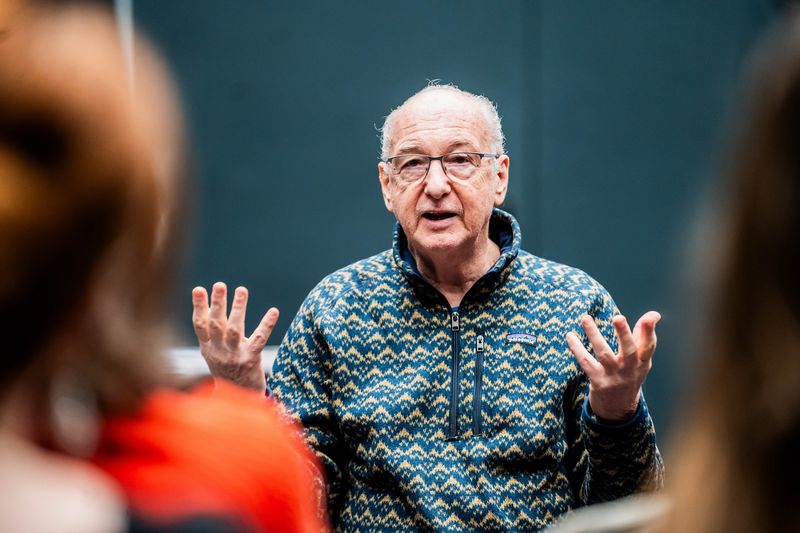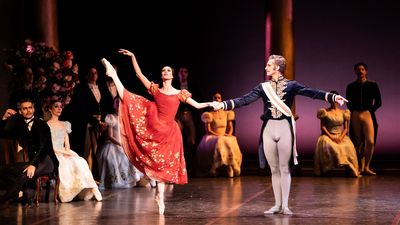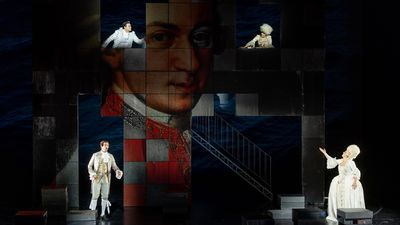
For the first time in its history, the Hungarian State Opera presents Antonín Dvořák's Rusalka in its own production on 27 January 2024. The production taking place as part of the Slavic Season is directed by János Szikora, with Andrea Brassói-Jőrös in the title role, costumes by Kati Zoób, and conducted by Péter Halász.
Rusalka is the most performed Czech opera in the world, even in its native country it is rivaled only in popularity by Smetana's The Bartered Bride, ahead of such works as Janáček's The Cunning Little Vixen and Jenůfa. Despite the supernatural beings taken from Czech folklore, poet Jaroslav Kvapil's libretto was mostly inspired by Hans Christian Andersen's fairy tale The Little Mermaid, but he was also influenced by 19th-century romantic German literary works.
Rusalka, the water nymph, tells her father, the Water Goblin that she has fallen in love with the Prince visiting the forest lake. The lord of the lake is devastated that his daughter wants to become a human, but in the end he sends her to Ježibaba. The witch warns Rusalka that she will lose her voice as a human, and if her beloved one is ever unfaithful to her, they will both be cursed forever. However, the girl believes in the power of love and takes the risk. When the Prince hunting in the forest finds the speechless girl, he falls in love with her at first sight and takes her to his castle. However, their idyll will soon end...
Dvořák, as a representative of the Czech national revival, enjoyed working on themes taken from folk music and folk tales, and he composed his work in just over half a year. The opera was presented by the National Theater in Prague in 1901 and immediately proved to be a huge success in its native country, with more than 2,000 performances in the Czech capital alone. Although it was presented in several major European cities in the following years, it really became part of the international opera repertoire from the 1980s.
So far, Dvořák's masterpiece has only been presented in two guest performances at the Hungarian State Opera, by the Bratislava National Theatre at the Erkel Theatre in 1956, and 20 years later the Prague National Theatre brought their production about the tragic love story of the water nymph to the Opera House.
Rusalka is staged by János Szikora, making it his 13th production at the Hungarian State Opera since the Salome in 1989. Drawing inspiration from the visual world of Art Nouveau, including the works by Mackintosh and Mucha, the sets of the production were designed by Éva Szendrényi, the costumes were designed by Kati Zoob. The dance sequences were created by Adrienn Rafai-Vetési for the artists of the Hungarian National Ballet and the students of the Hungarian Dance University.
The title role of Rusalka is played by Andrea Brassói-Jőrös, who won gained universal acclaim in the lead female role of War and Peace in the previous season. Her partners in the main roles are such internationally renowned soloists of the OPERA such as Zoltán Nyári (Prince), Szilvia Rálik (Foreign Princess), Károly Szemerédy (Vodník), and Erika Gál (Ježibaba), as well as Máté Fülep, Attila Erdős, Laura Topolánszky, Zsuzsanna Kapi, Anna Csenge Fürjes, and Lúcia Megyesi Schwartz. The Hungarian State Opera Orchestra and Chorus (chorus director: Gábor Csiki) is conducted by Péter Halász, first conductor of the Deutsche Oper am Rhein in Düsseldorf and first guest conductor at the Budapest OPERA.
Photo by Valter Berecz


